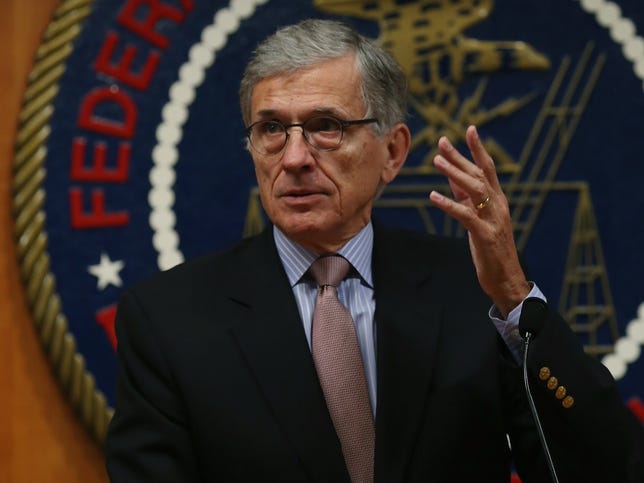
Mark Wilson/Getty Images
The federal regulators who intend to place restrictions on how Internet providers manage their Web traffic plan to vote on new guidelines in February, the Federal Communications Commission said Friday.
FCC Chairman Tom Wheeler intends to introduce the proposed regulations in February for a vote the same month, a spokeswoman for the commission confirmed, following an initial report from The Washington Post. The agency’s monthly meeting is scheduled for February 26.
The proposal is at the center of a debate around the concept of Net neutrality. That notion holds that all online traffic should be treated the same by Internet-access providers, with no sites or services being given preferential treatment.
The government agency’s work to establish new guidelines has placed it in a tough position. The FCC has to weigh the interests of providers against those of Web companies and users.
Net-access providers have argued, among other things, that high-bandwidth services like video-streaming sites should pay proportionately for the chunk of the network they’re using, and that without the ability to charge fees for faster connection speeds, the providers will have no incentive to invest in quicker networks. Internet infrastructure companies such as Intel, Qualcomm, IBM and Cisco have argued that more severe restrictions on access providers would hinder current broadband efforts and result in the loss of up to $45.4 billion in investments over the next five years.
Arguments in favor of Net neutrality include the concern that the charging of fees, and control over connection speeds, would give the access providers too much power over content distribution. Net neutrality supporters have also said that startups and other smaller companies wouldn’t be able to compete with deep-pocketed websites and services — and that innovation and alternative services would suffer as a result.
Earlier reports indicated that Wheeler wanted to vote on the regulations before the end of 2014 but that the draft was delayed to make sure the regulations could hold up in court.




